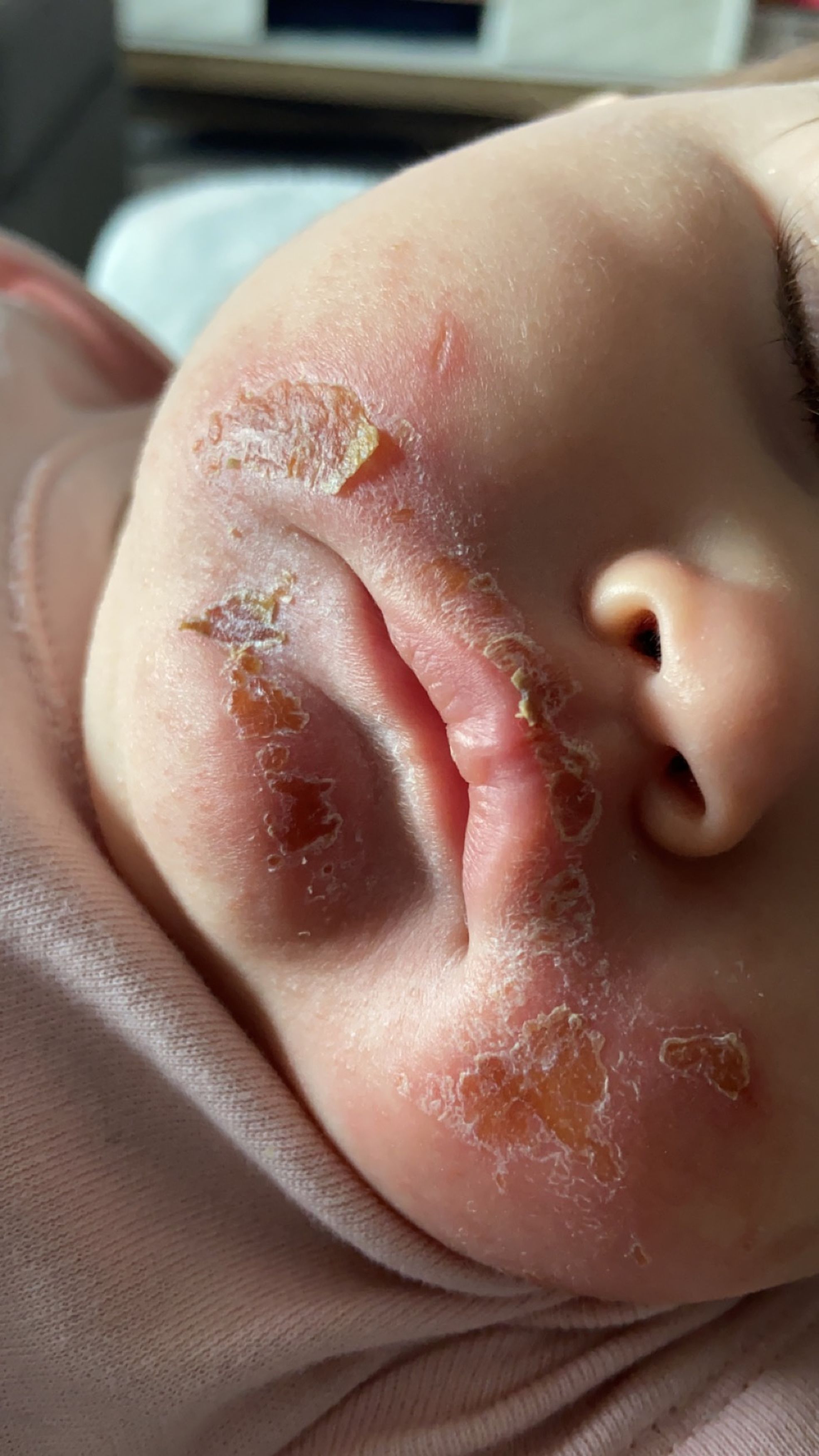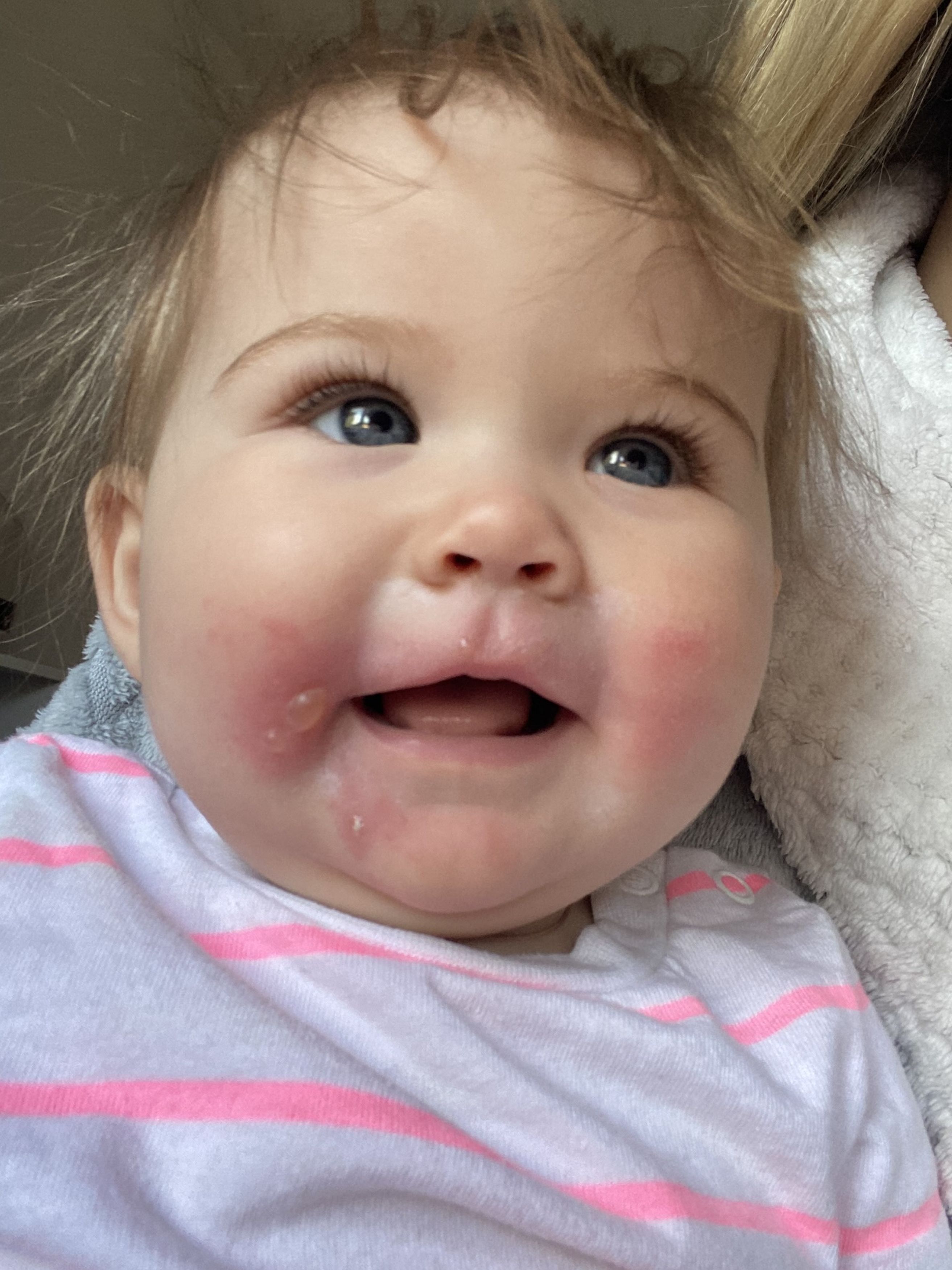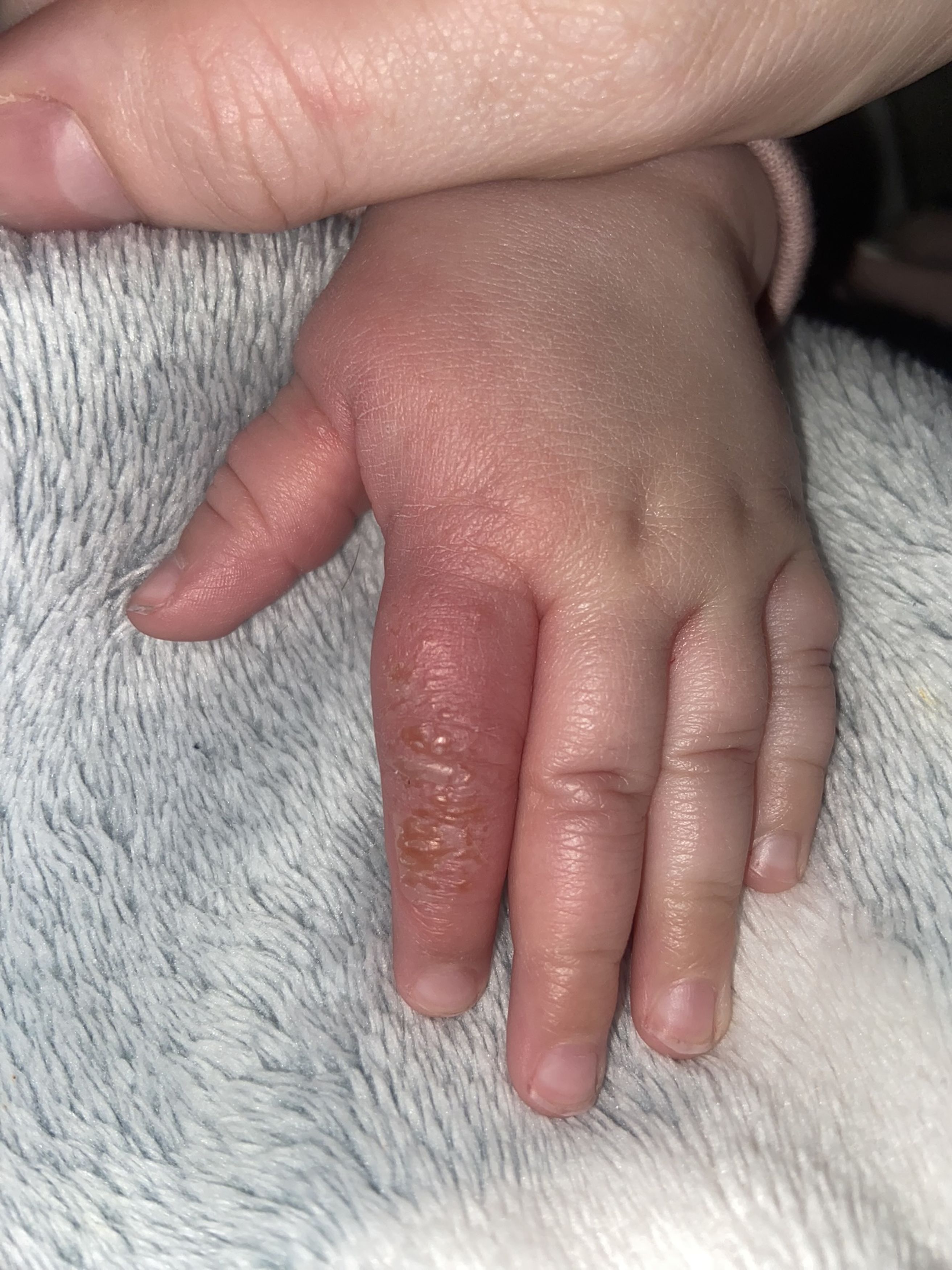Tyler Field was left horrified when her seven-month-old daughter Imelda Sykes broke out in a red rash on her face and hands.
The tot had been snacking on a celery stick in the sunshine on Sunday, May 19, for just 15 minutes when her complexion immediately began to change colour.
Concerned Imelda was suffering an allergic reaction or had been burnt by the sun, Tyler told a close friend about what had happened when she learned the risks of eating celery in the sunshine.
After carrying out her research, the mum-of-two discovered that Imelda had suffered from phytophotodermatitis – also known as ‘margarita burns’.
This is a skin reaction when the sap from certain plants such as giant hogweed – but also like carrots, celery and limes, gets on the skin and is then exposed to sunlight.
There’s a potential she could be scarred for a very long time because of this
Tyler Field
The areas affected become acutely red and often blister.
Tyler, who lives in Reading, believed Imelda had got away with just a red rash – before painful, fluid-filled blisters began breaking out on her baby’s arm and mouth the following day.
The 25-year-old said she felt “huge mum guilt” and fears her daughter may be scarred for life from the vegetable-induced skin reaction.
‘I thought she had had an allergic reaction’
Tyler, a stay-at-home mum, said: “I gave Imelda a celery stick for something to chew on and never really questioned it in my mind.
“She was then sat outside in the sun with her sun hat on. Within three hours, I noticed her cheeks and hands were red.
“I couldn’t work it out at first. I thought she had had an allergic reaction, but she’d had celery inside before, and she hadn’t eaten anything new before.
“It looked like burns, I was really concerned. I thought she’s some sunburnt somehow.
“Then I was meeting up with my friend for dinner that evening and told her about what happened.
“She said ‘she hasn’t had celery has she?’ My heart just dropped.
“Apart from her, none of my friends had heard of it before.
“I looked online and saw it could cause all sorts of burns and blisters, but I thought we’d get away with this.
“She only had a bit of redness around her mouth and hands.
“But then the next morning she had big, fluid-filled blisters all around her hands and around her face.
“It’s clearly where she had the celery on her hand and around her mouth.
“I had them on my arms too from where she had touched me. You can see the little fingerprints on my arm. I was so shocked.
“By the next day, the blisters became weeping skin.
“Then it started scabbing over, and she still has a lot of redness on her face and hands.”
‘I felt so guilty’
Tyler wants to warn other parents about phytophotodermatitis before other children become victims and also suffer burns.
Tyler said: “I was crying into my boyfriend’s chest.
“I felt so guilty, and I know it’s completely irrational, but, as a mum, you feel like you should know these things. I will never make that mistake again.
“It’s a summer food that everyone eats.
“It’s really concerning. I think it’s more prevalent in children because they’re messy eaters and it’s smeared all over their skin.
“But throughout this whole thing, I’m really surprised how little people actually know about this.
“There’s a potential she could be scarred for a very long time because of this.
“I just want to make people aware and let them know it’s celery burn. It’s just not common knowledge and needs to be more widely known.”
What is a margarita burn? And how do you prevent it?
Margarita burn is a skin condition also known as phytophotodermatitis.
- Margarita burns result when a chemical called furocoumarin reacts with sunlight
- This chemical is found in limes and citrus fruits, celery, figs, fennel and a number of other plants.
- Margarita burns typically start as a rash that forms within 24 hours of exposure.
- People with a mild case of margarita burn may never even notice it, as the condition tends to clear up on its own
- Worse cases may develop into severe blistering that can land you in the hospital
- Treatment varies depending on the severity
- Make sure to wash your hands thoroughly after handling citrus fruits, avoid touching other people if you’re preparing food, and make sure to cover up if you’re drinking or eating al fresco during the summer months






